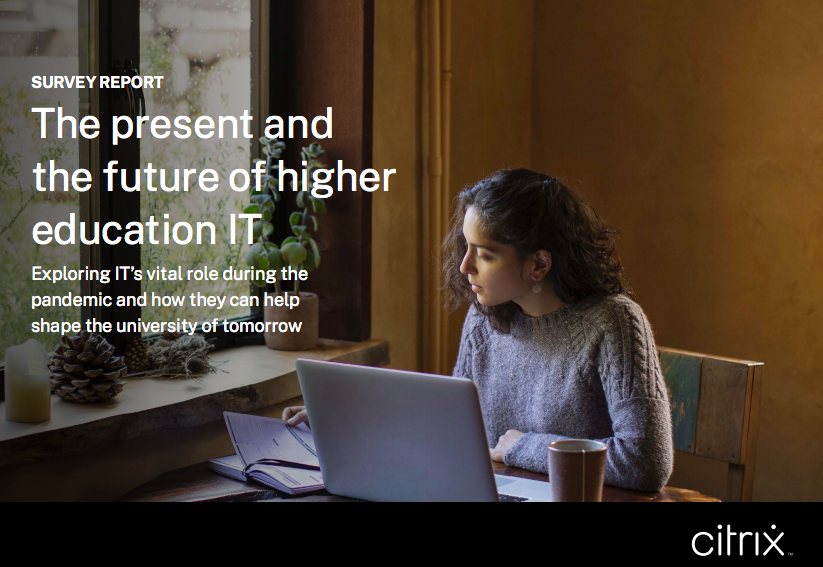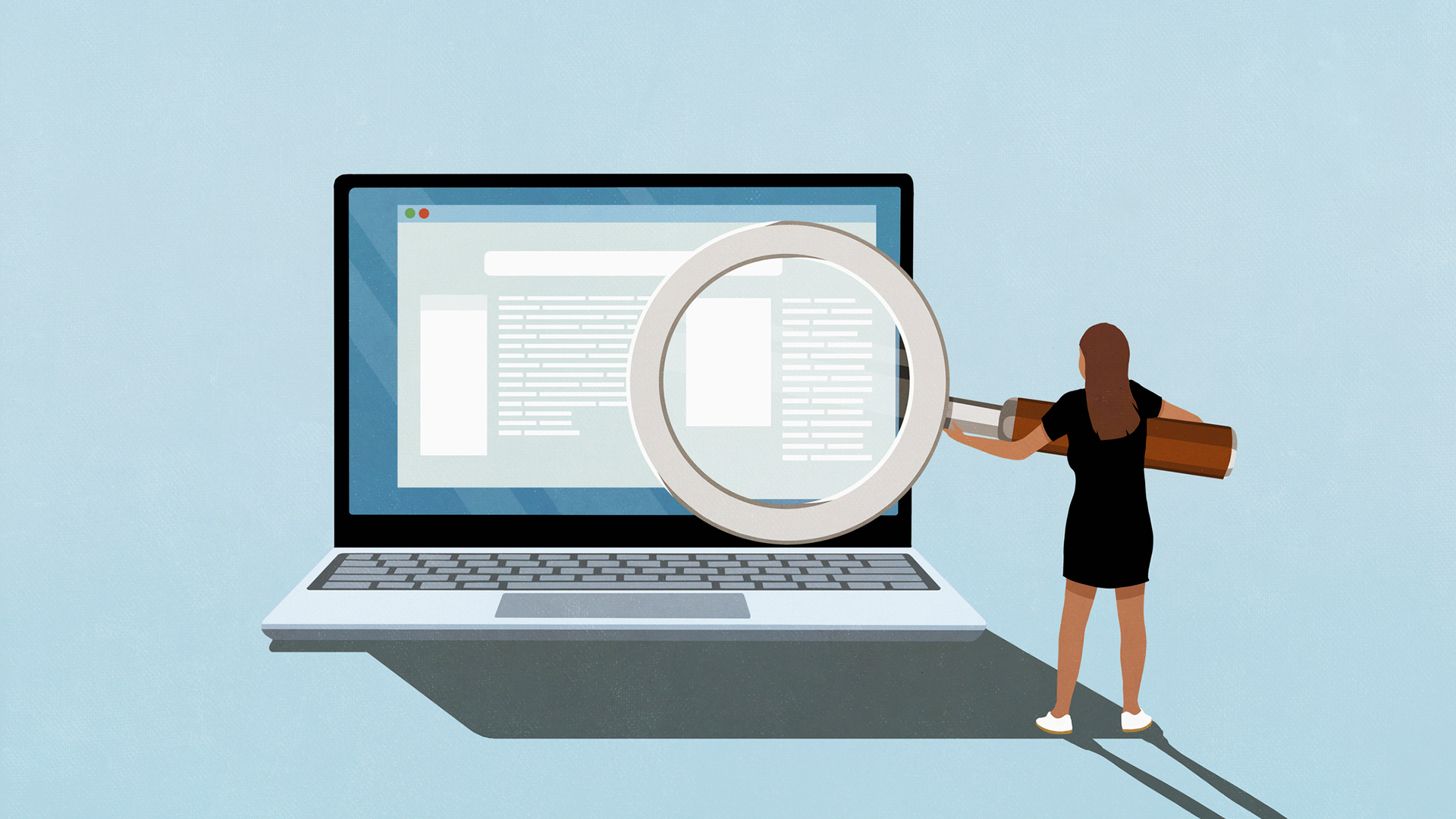Tax refund scammers target university staff and students
Like every year, tax refund scammers are in full force


Sign up today and you will receive a free copy of our Future Focus 2025 report - the leading guidance on AI, cybersecurity and other IT challenges as per 700+ senior executives
You are now subscribed
Your newsletter sign-up was successful
The Internal Revenue Service (IRS) has warned of ongoing phishing attacks impersonating the IRS and targeting educational institutions.
RELATED RESOURCE

The present and the future of higher education IT
Exploring IT’s vital role during the pandemic and how they can help shape the university of tomorrow
The attacks focus on universities' staff and students with .edu email addresses and use tax refund payments as bait to lure unsuspecting victims.
The IRS said the phishing emails “appear to target university and college students from both public and private, profit and non-profit institutions.”
It added that the suspect emails display the IRS logo and use various subject lines, such as "Tax Refund Payment" or "Recalculation of your tax refund payment." Clicking on a link takes victims to a fake website that asks people to submit a form to claim their refund.
The scammers ask taxpayers to provide a wide array of information, including their social security number, first and last name, date of birth, annual gross income, driver's license number, current address, and electronic filing pin.
The IRS warned people who receive this scam email not to click on the link in the email but report it to the IRS.
“For security reasons, save the email using "save as" and then send that attachment to phishing@irs.gov or forward the email as an attachment to phishing@irs.gov,” the IRS said in a statement.
Sign up today and you will receive a free copy of our Future Focus 2025 report - the leading guidance on AI, cybersecurity and other IT challenges as per 700+ senior executives
Taxpayers who may have provided identity thieves with this information should also get an Identity Protection PIN to prevent thieves from filing fraudulent tax returns in their names using stolen personal information.
Any scams reported to the Treasury Inspector General for Tax Administration will be investigated further by the IRS' Criminal Investigation division. Last year, the IRS identified over $2.3 billion in tax fraud schemes.
Chris Hauk, consumer privacy champion at Pixel Privacy, told ITPro that like every year, taxpayer-targeted fraud schemes are again plaguing US citizens.
“This is especially true these last two tax seasons, thanks to complications and confusion caused by COVID-19-related delays and tax law changes, as well as stimulus payments being delivered by the IRS,” he said.
“Taxpayers will need to be more vigilant than ever for possible hacking attempts. Users should never click links or open attachments sent with unsolicited emails or text messages. Users also want to be careful when opening documents, even from known sources, due to macros that can be used in MS Office documents. All users should immediately disable macros in MS Office apps."
Rene Millman is a freelance writer and broadcaster who covers cybersecurity, AI, IoT, and the cloud. He also works as a contributing analyst at GigaOm and has previously worked as an analyst for Gartner covering the infrastructure market. He has made numerous television appearances to give his views and expertise on technology trends and companies that affect and shape our lives. You can follow Rene Millman on Twitter.
-
 Agile methodology might be turning 25, but it’s withstood the test of time
Agile methodology might be turning 25, but it’s withstood the test of timeNews While Agile development practices are 25 years old, the longevity of the approach is testament to its impact – and it's once again in the spotlight in the age of generative AI.
-
 Will a generative engine optimization manager be your next big hire?
Will a generative engine optimization manager be your next big hire?In-depth Generative AI is transforming online search and companies are recruiting to improve how they appear in chatbot answers
-
 Salt Typhoon attack on US congressional email system ‘exposes how vulnerable core communications systems remain to nation-state actors’
Salt Typhoon attack on US congressional email system ‘exposes how vulnerable core communications systems remain to nation-state actors’News The Salt Typhoon campaign marks the latest in a string of attacks on US government communications networks
-
 ‘All US forces must now assume their networks are compromised’ after Salt Typhoon breach
‘All US forces must now assume their networks are compromised’ after Salt Typhoon breachNews The announcement marks the second major Salt Typhoon incident in the space of two years
-
 UK cyber experts on red alert after Salt Typhoon attacks on US telcos
UK cyber experts on red alert after Salt Typhoon attacks on US telcosAnalysis The UK could be next in a spate of state-sponsored attacks on telecoms infrastructure
-
 Healthcare data breaches are out of control – here's how the US plans to beef up security standards
Healthcare data breaches are out of control – here's how the US plans to beef up security standardsNews Changes to HIPAA security rules will require organizations to implement MFA, network segmentation, and more
-
 The US could be set to ban TP-Link routers
The US could be set to ban TP-Link routersNews US authorities could be lining up the largest equipment proscription since the 2019 ban on Huawei networking infrastructure
-
 US government IT contractor could face death penalty over espionage charges
US government IT contractor could face death penalty over espionage chargesNews The IT pro faces two espionage charges, each of which could lead to a death sentence or life imprisonment, prosecutors said
-
 C-suites consider quantum a serious threat and "amazing" deepfake attacks are just 'months away'
C-suites consider quantum a serious threat and "amazing" deepfake attacks are just 'months away'News Deepfake technology has matured at a rapid rate, and video scams are likely to be a on par with the more convincing voice-only campaigns very soon, one expert says
-
 US identifies and places $10 million bounty on LockBit, Hive ransomware kingpin
US identifies and places $10 million bounty on LockBit, Hive ransomware kingpinNews Mikhail Pavlovich Matveev was linked to specific ransomware attacks, including a 2021 raid on the DC police department
